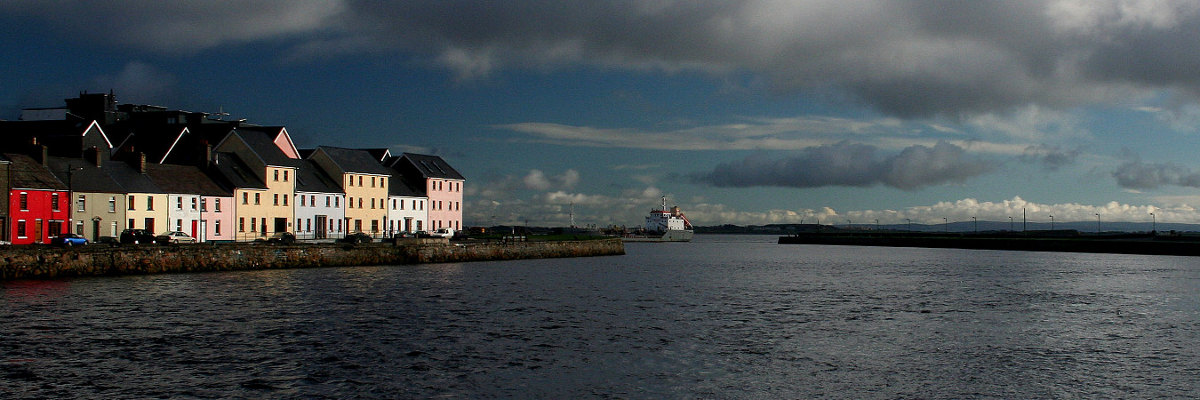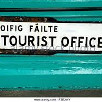Galway
Galway with a population of over 70,000, is Ireland's fifth largest city and is a major hub for visits to West Ireland. It has long since been known as "The City of the Tribes" and this title could not be more appropriate these days, given the vibrancy of present-day Galway.
Galway will be European Capital of Culture in 2020, alongside Rijeka, Croatia.

Image: Galway, Ireland
Culture
Galway is known as Ireland's Cultural Heart and is renowned for its vibrant lifestyle and numerous festivals, celebrations and events. Every November, Galway hosts the Tulca Festival of Visual Arts as well as numerous festivals.
On 1 December 2014, the Director General of UNESCO announced the official designation of Galway as a UNESCO City of Film.
Galway City has a reputation among Irish cities for being associated with the Irish language, music, song and dancing traditions. It is sometimes referred to as the 'Bilingual Capital of Ireland', although like elsewhere in the Republic of Ireland, inhabitants converse mostly in English.
Galway has a vibrant and varied musical scene. As in most Irish cities traditional music is popular and is kept alive in pubs and by street performers.
Events and festivals
Many sporting, music, arts and other events take place in the city. The largest of these annual events begins with the Galway Film Fleadh and the Galway Arts Festival in July, the Galway Races in August, and the Galway International Oyster Festival in September. Other events include the Fleadh Imboilg, the Baboró International Children's Festival, the Cúirt International Festival of Literature, the Galway Early Music Festival, Seachtain na Gaeilge (March), Salthill Air Show (June), the Colours Fringe Festival, Little Havana Festival, the Galway Sessions, Galway Garden Festival, Galway Comedy Festival, Baffle Poetry Festival, Galway Aboo Halloween Festival, Tulca Festival of Visual Arts, Galway Science and Technology Festival, Spirit of Voice Festival, Galway Christmas Market, Galway African Film Festival and Galway Pride Festival.
The Claddagh
On the west bank of the River Corrib as it enters the sea is the ancient neighbourhood of The Claddagh. For centuries it was an Irish-speaking enclave outside the city walls. Claddagh residents were mainly fisher folk and were governed by an elected 'King'. The King of the Claddagh settled or arbitrated disputes among the locals and had the privilege of a white sail on his fishing boat. The last true king, Martin Oliver, died in 1972. The title is still used but in a purely honorary and ceremonial context. The area is also famous for its association with the Claddagh Ring (a traditional Irish ring which represents love, loyalty, and friendship).





